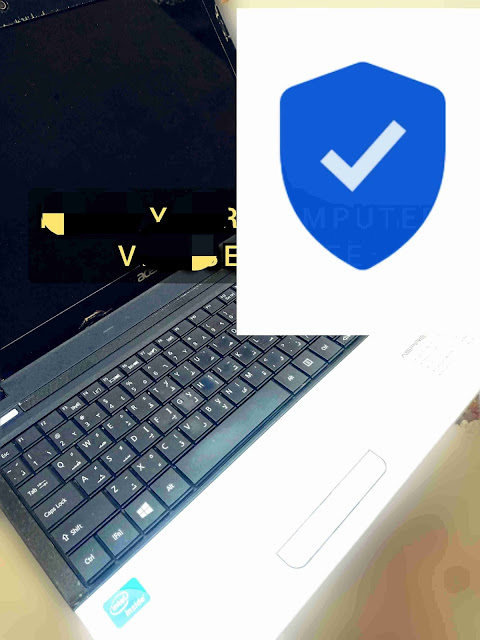Millions of cyber security attackers are hanging around the world, and with a slight mistake, they'll get to raid your personal computer.
Operating a computer is not as simple as using a mobile phone device because PC systems are very delicates to be infected by viruses and other malicious software.
One who is using a computer system always needs to be aware of threats that may befall his systems. The security measures that are required to keep computers safe and secure depend on how we often use them and what tasks we do. For example, those PCs used in business centers might be very vulnerable to attacks because they mostly use the internet for a long day and receives several types of information from different users, unlike our personal computer which we only use Timely. In any case here are tips that help you keep your computer safe and secure.
Also Read:
- 4 Common types of Computer Viruses
- How to uninstall programs from computer
- How show hidden files and folders on pc windows
1. Regular updates of anti-virus
Having installed the anti-virus on your computer will not be sufficient to protect it against viruses and other upcoming dangers, the anti-virus always needs to be updated. This update feeds them with any newly developed virus code and malware because hackers always invent and release new styles of harmful malware. If your anti-virus software is outdated it can not understand the newly invented viruses and malicious software because it was not been known to it as threats before, it will just allow any unknown threats to pass through them and spread out to your computer.
Make sure your PC has the latest version of anti-virus purchased from reliable and well-known vendors and is updated on regular basis.
2. Regular updates of the software
Any other computer software and hardware needs regular updates to keep it safe. Leaving some major software without updates such as operating systems, web browsers, drivers, and Windows firewalls will make your computer very weak and vulnerable to attack by criminals.
Users can turn on automatic updates of the software to keep them fresh every time, they'll always look for new updates in their servers and automatically update themselves.
3. Avoid clicking on suspicious links
Whenever you suspect a link you better keep away from it. The same goes for an email attachment that comes from an unfamiliar source and thus can be embedded with malicious malware to pish your sensitive information. Some of the intruders intentionally sent you an email and attached it with attractive pictures to lure you into their traps, once you download the attachment the virus spreads into your PC and steals your data. The best practice is to protect your computer and your data by deleting any suspicious email from your inbox.
4. Avoid visiting shady websites
Downloading free illicit and pornographic movies usually invites malware into PCs, downloaded movies from such sites can be embedded with malicious codes to compromise the user's private data. Also check before installing free applications software, games, and demos.
5. Avoid public wireless
The best practice is to sidestep any WiFi connection aims to provide free internet services to everyone especially if you are going to do online purchases and any other financial transactions that reveal your personal information or card details. However, certain circumstances make you use public WiFi, in such a situation it is recommended to use VPN which is used to encrypt your outgoing data.
6. Install hardware and software firewall
Windows firewall is a Microsoft Windows program that helps in protecting your PC from any unwanted threats and blocks potentially harmful programs. It can control the user's internet connection and make it secure against viruses and spyware attacks.
Check out your PC control panel and make sure the Windows firewall is activated.
Other computer safety tips to look for include:
Check for external drives before using them.
Protect it with a strong password.



![How to Find a Lost or Stolen Phone [Google Find My Device]](https://blogger.googleusercontent.com/img/b/R29vZ2xl/AVvXsEiuHlG0tF26ok96uSXIKOQ-R51eQb_ogxUlLUsVbX3o7AhO_Gs8wvlbWYwbkO9a4tSxE-pv_sOoX1exCWZZCtX25wPbngvbCwN7clFk1N5QWG75-WkY4Hy352mmcXfi4X8nWXx9LjwsunPg_RgRbMyGiZ9but9eifKtSn-lwn1eUUfY-dpYDWGkHi3s/w72-h72-p-k-no-nu/Screenshot_20230224-112507.png)

![3 Best Browsers For Android Phones [Tested and Confirmed]](https://blogger.googleusercontent.com/img/b/R29vZ2xl/AVvXsEjCRf5Zv4oH-ozjIzE5KQn_UtZlbL67XXDF8cFY9f06iYtR_QrUb3vDCPuPtt35uyI-gj5ueASBKVsDyhpjnVt5GV_G4mJXypsJj-Bm2apH8210nbrrQUUgnxOurE55dVHfssJCQpAWmmg0tEUQopArCu4DzmiS8kynkI_Y7EJv7Z3-40KH1xsT5ReXgJo/w72-h72-p-k-no-nu/1688908227364logo.png.png)
0 Comments